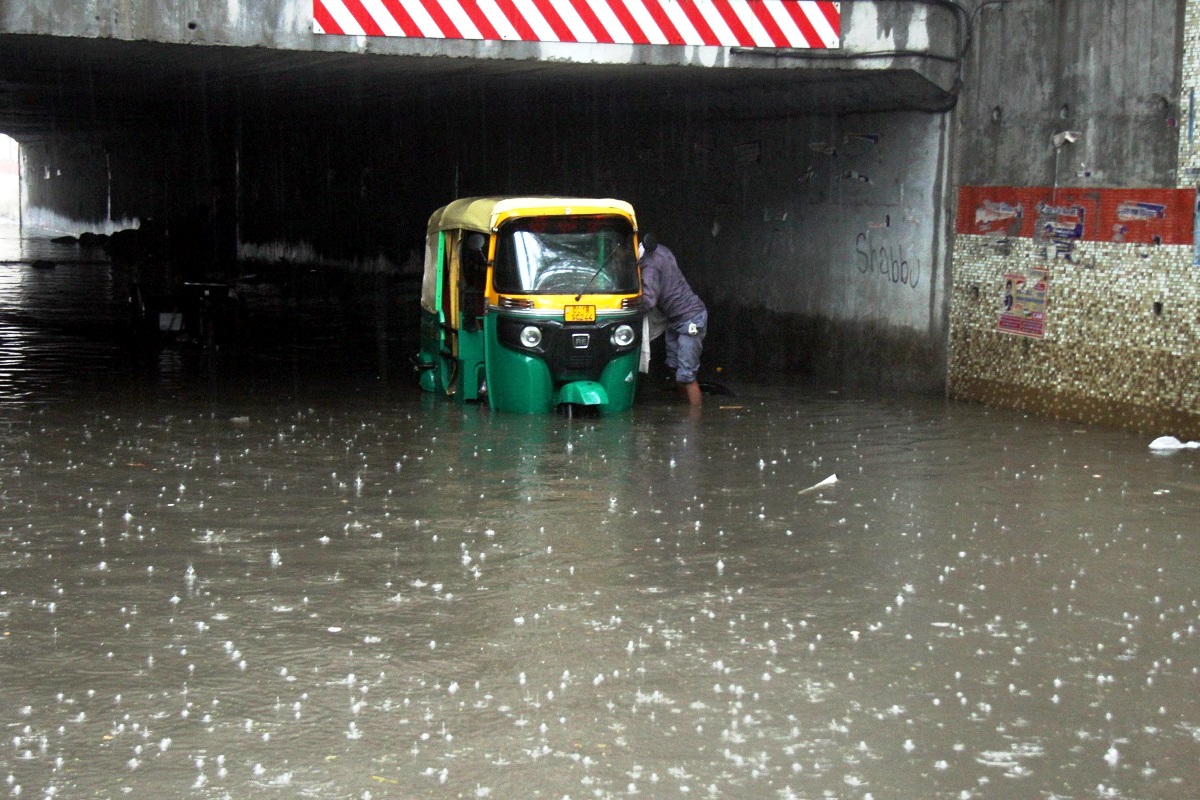After flyovers, city planners want Delhi’ites to commute through tunnels and underpasses. But the move gives much worry, particularly after the death of a young doctor in her car submerged in rainwater in a Tamil Nadu underpass, a few days ago. The government surgeon got no help, and her seat belt and car doors jammed.
This is the scenario that Delhi motorists fear every time underpasses in the city get flooded. There have been regular incidents of people drowning in the city underpasses. Now, a tunnel connecting Purana Quila Road and Mathura Road with Ring Road behind Pragati Maidan is nearing completion along with a number of connected underpasses for traffic in different directions. A few kilometers away, the much-delayed Ashram underpass is expected to be operational in a couple of months.
Advertisement
The move to direct traffic through underpasses is aimed at smoother movement as the existing links are collapsing under the burden of increasing vehicles. Delhi has more vehicles than all the three big metros Kolkata, Mumbai and Chennai put together, and their number is crossing 1.2 crore. But the city knows the record of underpasses quite well. They were never able to withstand even a night’s good rainfall.
Buses submerged under the Minto Bridge underpass quite often. The other Old Delhi-New Delhi link, the Tilak Bridge, too has a similar past. Many underpasses in outlying areas go through similar experiences. Even the busy underpass between Bhairon Marg and Ring Road was always full of water and slush during the monsoons. The civic authorities have a tendency to treat certain pockets of Delhi as not worthy of attention.
The Ring Road stretch towards Nizamuddin Bridge always gets submerged during monsoons, and for days, leaves just a narrow strip for use of cars and huge inter-State lorries. The city does not have a good record of clearing water from roads, large crossings or underpasses. The Dhaula Kuan underpass towards South Delhi and the Maya Puri-Kirti Nagar crossing give a scare to motorists every time it rains.
In such a situation, the coming up of more underpasses does worry the citizens. What goes on in the underpass stretches is not visible easily. Should an emergency situation arise, will it come to notice, before a tragedy occurs? Will there be a 24×7 police or civic chowki at each end of a long underpass to help, in case of a broken vehicle, a road cave-in or waterlogging? Will there be good CCTV cameras, and sound mobile connectivity in the underpasses?
These are some of the questions that come to people’s mind because of Delhi’s civic history. The construction of the 1.2 km underground tunnel connecting Mathura Road with Ring Road, along with that of the underpasses, has already meant messy driving over long stretches for approaching Nizamuddin Bridge. People would like the new underground traffic system to be trouble-free and not create fresh challenges.
The Ashram Chowk underpass, three-quarters of a km in length, is expected to be ready by November. This is the area where Delhi approaches Faridabad, Noida and Ring Road towards Sarai Kale Khan. The city has obviously caught the fever of underpasses, after the flyovers, which came one after another, after the first flyover came up at Shadipur near the DMS plant. Their upkeep has always been a challenge for civic authorities.
The underpasses can pose even more serious challenges. A man died in this year’s July flooding under the Pul Prahladpur railway underpass in South East Delhi. Local residents said the man wanted to take a selfie or shoot videos. The underpass is flooded in every monsoon. Another man died in a flooded underpass in Gurugram just a day earlier, in the same month.
Divers and boats had to be used to fish out his body. In July last year, a man died when he tried to cross the flooded Minto Bridge underpass in his tempo. The underpass had so much water that only the roof of a submerged DTC bus was visible. Delhi’ites know that at night, no one cares. Even on well-lit roads, the law-and-order machinery is scarce.
Accidents on the Barapullah flyover have exposed that not much study had gone into the driving that the curvy flyover would require. Will the underpasses, then, mean a smooth ride, or give nightmares to Delhi’ites, time will tell.
(Contributed by: Deepak Razdan & Amit Banerjee)











